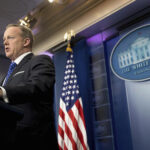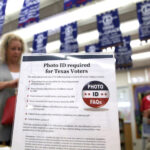President Trump Addresses Congress
On February 28, President Trump gave an hour-long speech in front of both houses of Congress in which he outlined his administration’s achievements so far, as well as what he hopes to accomplish during the rest of his term. He also called for unity between congressional Democrats and Republicans. Let’s take a look at some of the key points of his address.
Achievements and Promises
According to President Trump, during his first weeks in office, his administration has signed on companies to invest billions of dollars in creating new American jobs; has saved taxpayer dollars by placing a hiring freeze on “non-essential” federal workers; has withdrawn the United States from the Trans-Pacific Partnership; has formed a council with Canada to help female entrepreneurs; has established a Department of Justice task force to reduce violent crime; has reaffirmed the nation’s alliance with Israel; and has strengthened immigration enforcement and border security.
Among Trump’s promises for the future: improving veteran care, improving infrastructure, slowing and stopping the drug epidemic, hastening the return of dying industries, and improving inner cities.
Jobs and the Economy
The president stressed the importance of making it easier for companies to do business here in the U.S., and making it harder for them to take jobs elsewhere. To this end, he proposed developing tax reforms that will drastically reduce taxes on American companies, making it easier for them to compete, as well as raising tariffs on foreign goods entering the country. He also asked Congress to approve a trillion-dollar infrastructure investment that would create a million new jobs, governed by the principle of “buy American, hire American.”
Health Care
As congressional Democrats booed and flashed a “thumbs-down” sign, President Trump reaffirmed his pledge to repeal and replace the Affordable Care Act. His plans include: lowering the overall cost of health insurance; increasing the use of tax credits and health savings accounts (HSAs); giving governors flexibility with Medicaid; bringing down inflated drug prices; and allowing people to purchase coverage across state lines. He also promised a “stable transition” for the 20 million Americans currently insured under the ACA who face losing their coverage if the ACA is repealed.
| BREAKING NEWS: The Republican Congress has recently released its first public look at the proposed health care reforms that they wish to take the place of the Affordable Care Act. Next week’s Election Central post will focus in on this topic in more detail. |
Immigration Reform and Foreign Relations
Trump renewed his pledge to begin construction on a wall along the southern border of the United States, though he did not address how this multi-billion-dollar project would be paid for. In what may have been his most controversial announcement of the evening, Trump revealed that the Department of Homeland Security will create a new office called Victims of Immigration Crime Enforcement (VOICE), which will examine violent crimes committed by undocumented immigrants. Congressional Democrats gasped audibly when this announcement was made.
The president also announced that his budget plan calls for one of the largest increases in military spending in U.S. history. He reasserted the importance of our NATO alliance, but stressed that “our partners must meet their financial obligations,” and that he believes in “free trade . . . but it also has to be fair trade.”
Responses and Reactions
While many of the president’s statements drew cheers and standing ovations from the Republican side of the aisle, congressional Democrats remained seated for much of the speech and even booed or gasped occasionally, such as when Trump made announcements about healthcare and VOICE. Dozens of female representatives came dressed in white to pay homage to suffragettes and to nonverbally oppose Trump’s policies.
Reactions from the press were mixed as well. While some outlets praised Trump’s speech as being very “presidential,” others questioned how he would carry out many of his promises. The president himself enjoyed the highest ratings he has received since his inauguration in January.


